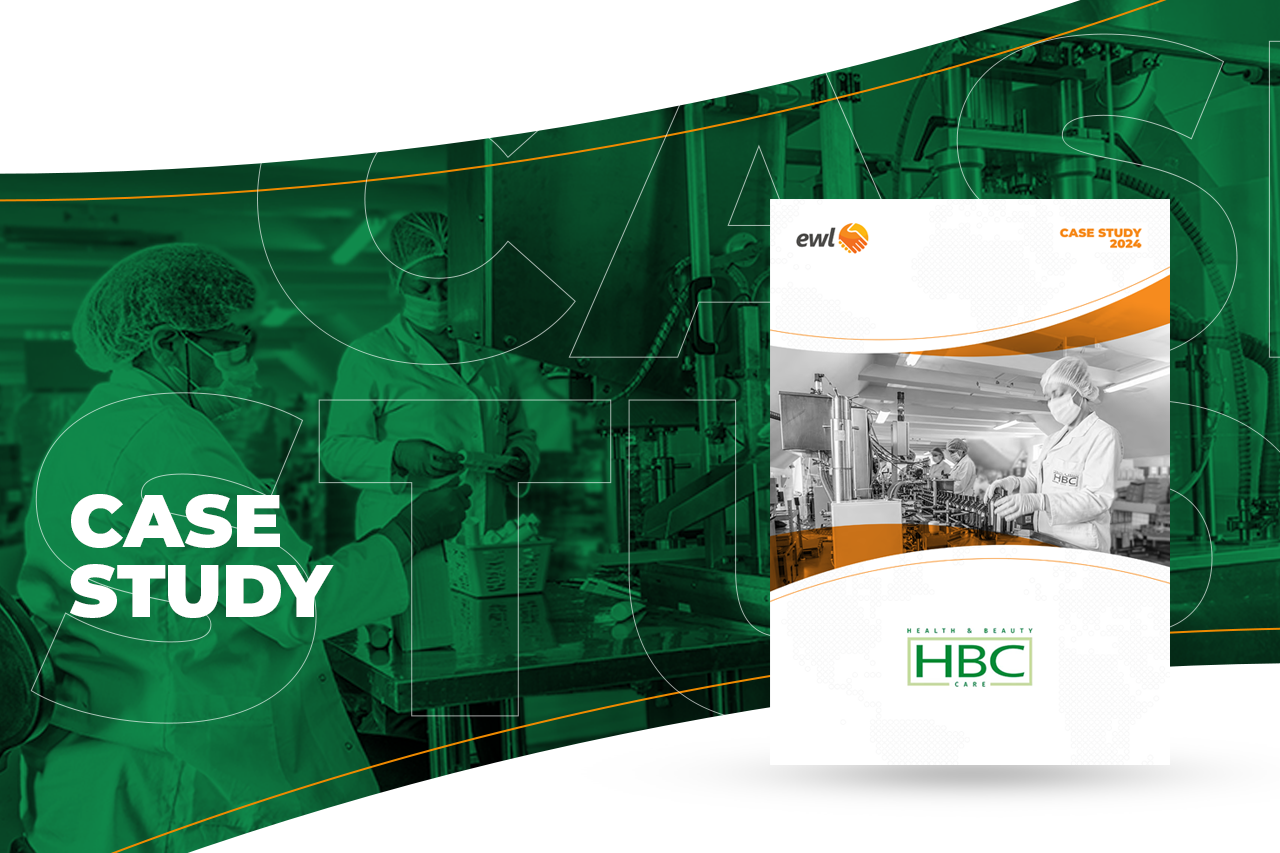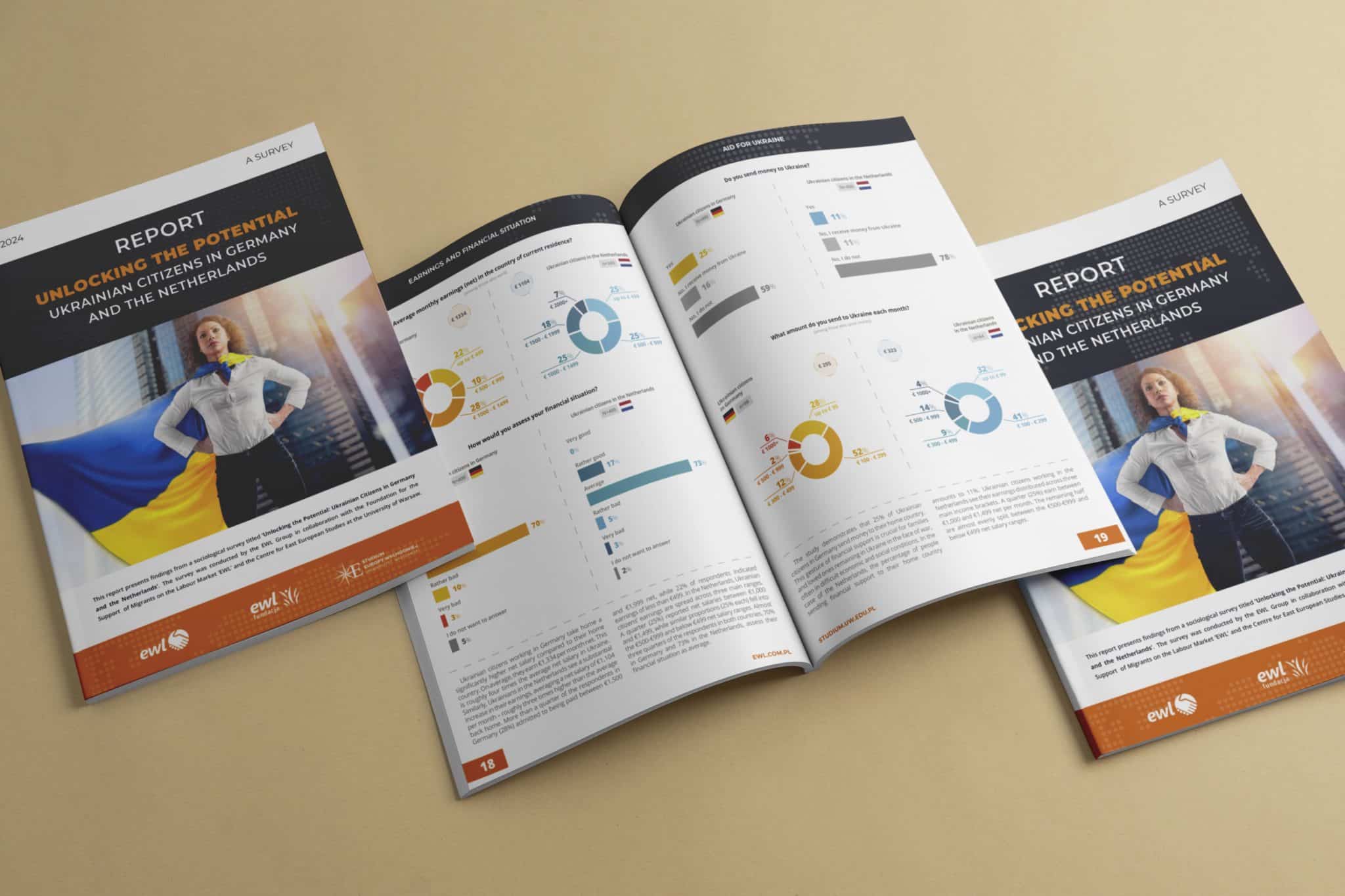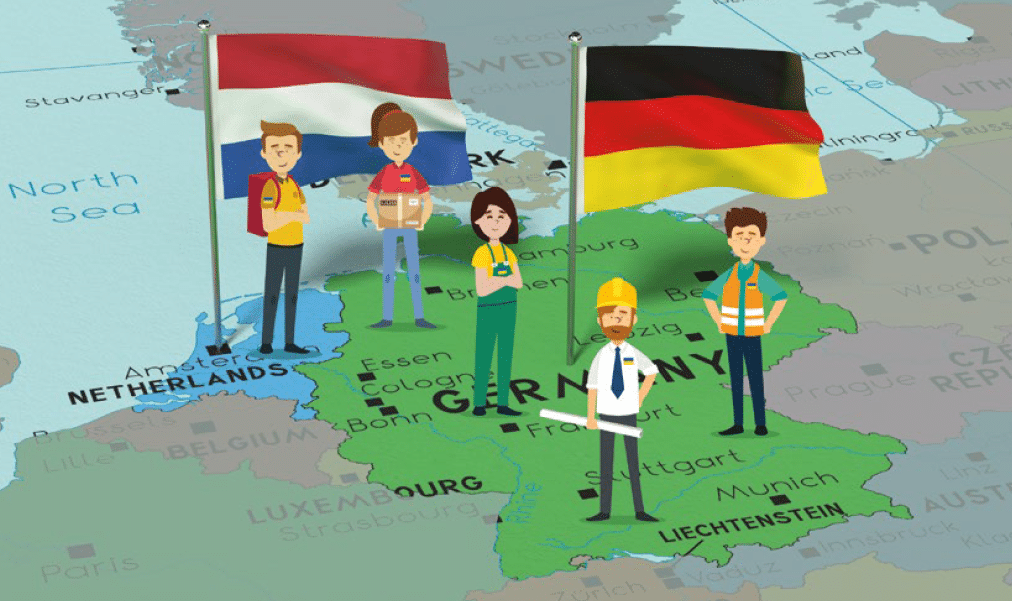
Puls Biznesu talks about the use of technology in the development of cross-border mobility with Andrzej Korkus, the CEO of the EWL Group.
The EWL Group was founded in 2007. During almost 15 years of the company’s operations, the labour market has undergone many changes. How did it influence the development of the company?
Actually, it has shaped it. When we opened in 2007, the Polish economy was at an unusual moment. After Poland’s accession to the European Union unemployment fell significantly, moreover 2 million Poles emigrated to the West, and at the same time foreign business started to flow into Poland and large production plants were opening. Meanwhile, unlike in Western European countries, where up to a dozen percent of employees were foreigners, almost 99 percent of those employed were Polish citizens. This is when a problem arose – there was a shortage of workers. We decided to solve it by giving Polish entrepreneurs the opportunity to hire foreign workers. Initially, we focused on one of the largest migration flows between Ukraine and Poland in the recent years. However, the problem of cross-border mobility does not only concern the Polish market, so we gradually extended the scope of our activity. Currently, nearly 7% of the Polish labour market consists of foreigners, and our company recruits globally for the EU countries. We recruit employees from 17 countries for 350 clients, we employ them on 5 markets and we intend to enter new ones. Last year we hired almost 30 thousand employees. Our competences go far beyond the traditional model of a temporary employment agency.
We respond to many needs of our clients and employees, e.g., using technology in recruitment, we focus on presenting job offers in a transparent way so that migration is risk-free. Thanks to our services entrepreneurs do not have to deal with the labour-intensive recruitment process, navigate complex legalization procedures or worry about accommodation for workers.
What are the advantages and disadvantages of running an employment agency in Poland?
Polish economy is one of the fastest growing in Europe, our labour market is attractive and competitive, it is not yet as penetrated as the markets of Western Europe. Especially recently we have been attracting a lot of investments from the West and Asia. According to the research of European centres, the real level of unemployment in Poland is 3 percent, which currently puts us in third place among the European Union countries, just behind the Czech Republic and the Netherlands, which are smaller than Poland. Among the OECD countries, it is our country that annually issues the largest number of first permits and long-term visas, in the vast majority for the purpose of work – every year we even overtake Germany and the United States in this category. Compared to those countries, our system is more innovative, which may indicate that we are becoming a truly mature labour market.
In times of the coronavirus pandemic, obstacles sometimes appear unexpectedly, but each challenge mobilizes us to seek and introduce innovative solutions. One of the shortcomings is the still not entirely clear line of jurisprudence in some areas at the interface of migration law. The mass influx of workers to Poland started 7 years ago, but there are still areas where there are no clear rules of legalization.
It should also be emphasized that on the Polish labour market there is competition both, for the employees and for the customers. We have to compete with many enterprising, very resilient employment agencies, sometimes with regard to the same customer.
You mentioned that EWL stands out from the traditional TEA model. What distinguishes the group from its competitors?
Our greatest asset is customer-oriented business. We have the fastest growing customer experience department among all employment agencies. We constantly survey our employees’ moods, among others through our apps, measuring their contentment and taking care of their level of satisfaction. Our data shows that the length of employment of our foreign workers significantly stands out on the market.
A huge advantage, and one of our priorities, is solving problems through technology. We are already a globally accessible employment platform with 350 customers on 5 markets and employees applying from 17 countries. Together with our partners, we implement solutions based on machine learning. The technology we have at our disposal allows us to optimally match an offer with the job seeker’s skills and, for an employer, to hire an employee tailored to their needs. We have managed to automate many processes, from recruitment to legalization.
Our experience is also fundamental. We have been operating since the beginning of this market.
EWL’s entire business model is tailored to employing workers across borders. We have confirmed its effectiveness in Poland, and are now successfully introducing it in Romania, the Czech Republic and Western Europe. Paradoxically, although these markets are often more mature than ours, it is us who have more experience in cross-border recruitment from outside the European Union. We transfer our know-how from the East to the West, which is unique.
Based on this experience, what, in your opinion, are the forecasts for the Polish and European labour market in 2022?
I think this year will be very good for the economy, and consequently difficult for the labour market. According to The Economist, households in developed countries have never had as much cash as they have today. Savings accumulated during the pandemic, which limited the opportunity for much spending, will now seek an outlet. There is also a gigantic influx of investment. Both, European companies that had production lines in Asia, and Asian companies that want to operate on European markets, have learned painfully how much risk is involved in long supply chains. For this reason, they are looking for opportunities to move part of their production or warehouse facilities to the European Union. Their choice is most often directed towards such countries as Poland, the Czech Republic, Slovakia or Romania. Of these, Poland is the largest, so we will have a large share of the pie.
As a result, a lot of jobs will appear on the market, which, given the already marginal unemployment, may mean difficulties in finding candidates for these positions. We observe, however, that the European competition for employees is getting tougher.
Countries, which so far have not recruited outside the European Union, now understand this necessity and are beginning to introduce legal regulations similar to those in Poland. The ace up our sleeve are the latest changes to the Act on foreigners, but the fight for workers in the EU will be fierce for sure, because the demand is gigantic.
What does the new legislation mean for the employers, employees and employment agencies in practice?
Changes in legislation were necessary. Despite liberal access to the labour market, especially for citizens of neighbouring countries culturally similar to us, the formalities related to the employment of foreigners were laborious and lengthy. The Act signed by the President on 4 January introduces many simplifications concerning, among others, granting temporary residence and work permits to foreigners and extends the list of circumstances in which it is not necessary to apply for a new residence and work permit. The length of the period of employment on the basis of the declaration on entrusting work to a foreigner will also be changed from 6 to 24 months. The deadlines for obtaining permanent and temporary residence permits will also be shortened.
The new regulations will be particularly beneficial to foreigners who are already working in Poland, have gained experience at their workplace, mastered the basics of the language and want to work here longer. They will undoubtedly contribute to the professional development of foreigners and their careers in Polish companies.
Employers, in turn, will not have to part with trained and valuable employees. Labour migration will cease to be of short-term, rotational nature, which will allow to build stable teams.
Reduced waiting time for the so-called residence card may stop the outflow to the West of people working in specialist or managerial positions. We will also feel relief after the changes come into force. Our cross-border workers will be able to stay in Poland longer, and official and legalization proceedings will take less time. I assess these changes very positively, it should be easier for everyone.








